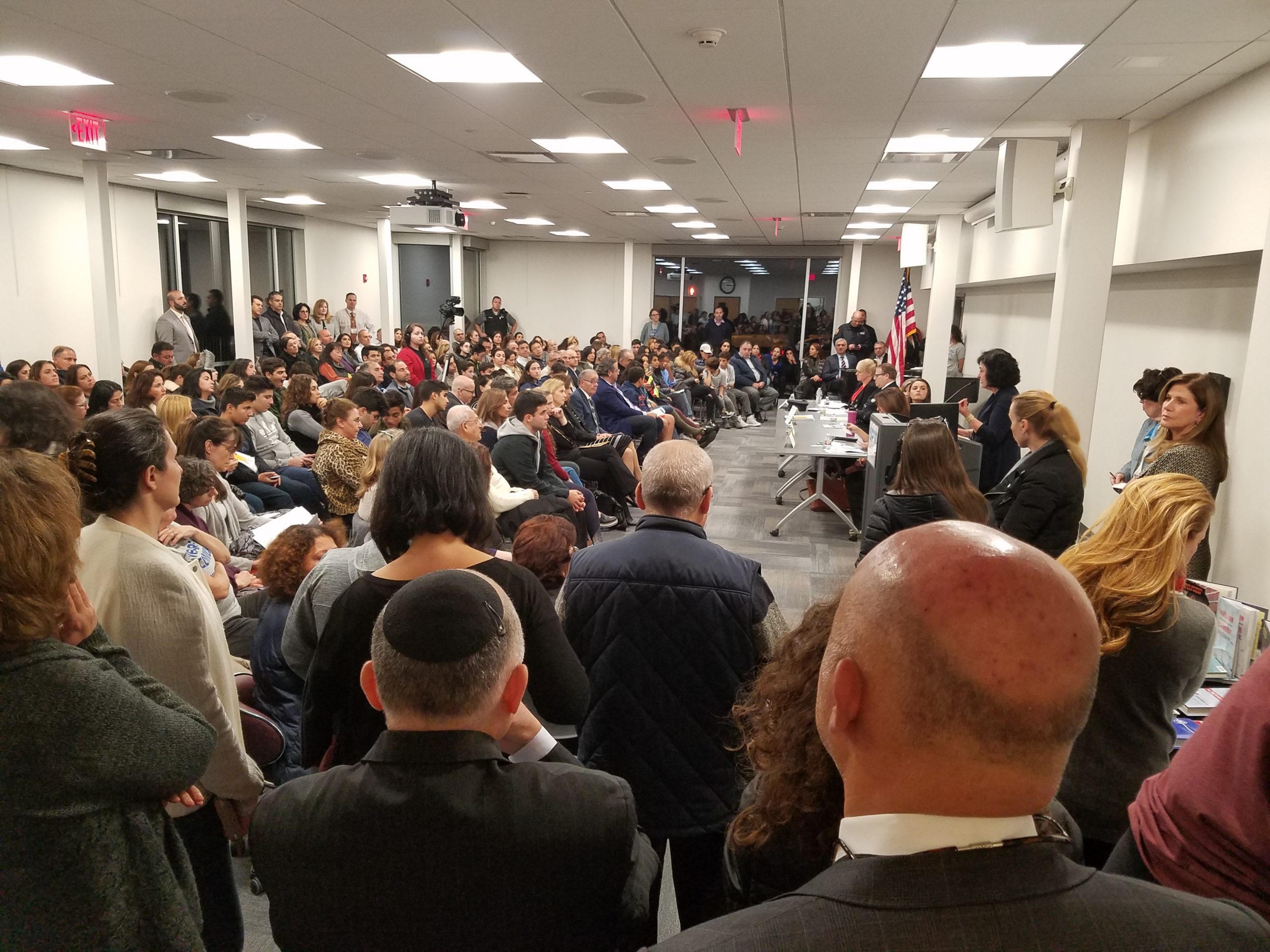More than two hundred people crowded a community room in the Great Neck Library for a heroin and opioids addiction forum on Wednesday, searching for answers about the epidemic and what they can do to stop it.
Organizers had described the event as both a reactive and precautionary measure, aiming to educate teens, parents and others in the area about drug abuse, how to recognize it, and what actions they could take to fight it. The forum also took on adjacent topics like gateway drugs, vaping and mental health, noting that they often are connected.
“We’re hoping tonight is the start of a re-energized community conversation about drug addiction and mental health,” Jackie Harounian, a member of North Shore Action and the forum’s moderator, told the crowded room.
Present at the forum were Cathy Samuels of CASA Manhasset, a group fighting substance abuse, Maria Elisa Cuadra, the CEO of Great Neck-based COPAY Inc., which treats drug abuse, Amanda Cioffi from the Long Island Council on Alcoholism and Drug Dependence, Detective Pamela Stark of the Nassau County Police Task Force on Opioids, and Zachary Goldfarb, an EMT from Vigilant Fire Company.
Also attending were administrators, police officers, mayors, town board members and public officials like state Sen. Elaine Phillips, a member of the state Senate Task Force on Heroin and Opioid Addiction who said drug addiction has no boundaries.
“Drug addiction has no age, no socio-economic designation, no race,” Phillips said. “It has nothing.”
In an interview following the forum, Stark said that drug addiction killed 64,000 people in the country just last year and that the issue is not understated anymore. She also noted that while 75 percent of heroin users in 1960 started with heroin, in 2000 about 80 percent of heroin users started with prescription drugs.
“There’s not always a common denominator, but the prescription drugs have been very much involved,” Stark said.
“There has been a false sense of security on our streets that prescription drugs, the narcotics, were not addictive,” she added.
Dr. Shahnaz Malekan, a Great Neck-based psychiatrist and physician, said she attended the event because it focuses on a topic she studies. And while the forum “scratched the surface,” she said it covered all the basics and that parents would be left with an valuable lesson: the importance of education.
“I think we really need to educate our children and the parents on a regular basis about the risk factors for substance abuse,” Malekan said. “And most importantly, parents have to be role models for their children because children learn from their parents.”
Malekan added that another important comment came from Maria Elisa Cuadra of COPAY Inc., who said that parents should watch out for symptoms of mental illness, seek professional help if there’s a problem and know if there’s a family history of psychiatric disorders.
Rebecca Sassouni, the newly-elected president of SHAI and a board of education trustee, said she was impressed by the quality of speakers. She also noted that while there has been conversation going on about heroin and opioids, this forum will likely create even more.
“I thought that last night’s event was tremendous,” Sassouni, who brought her teenage children to the event, said on Thursday.



